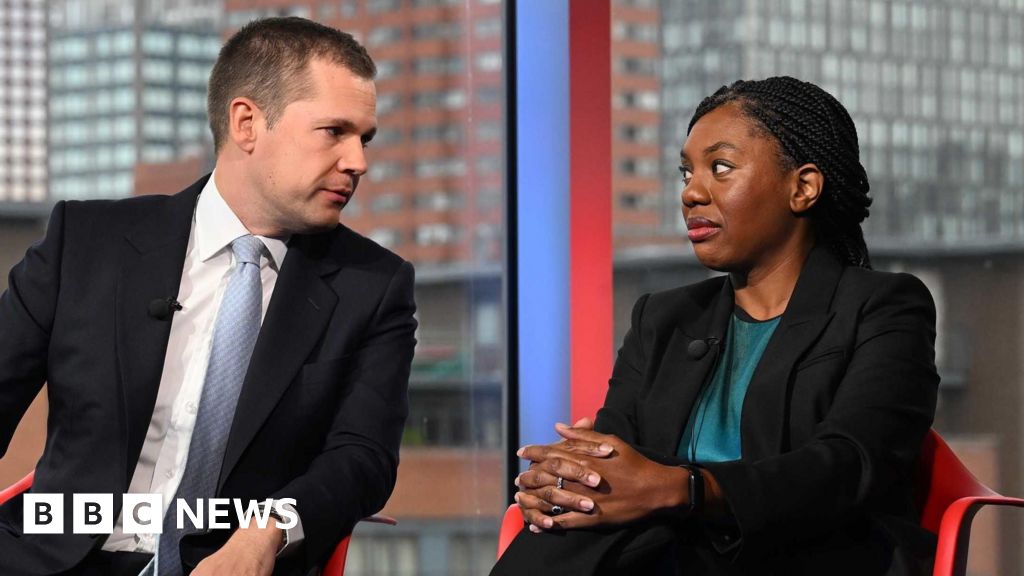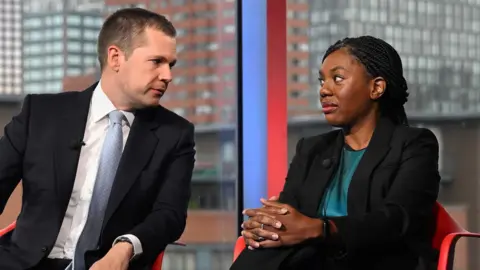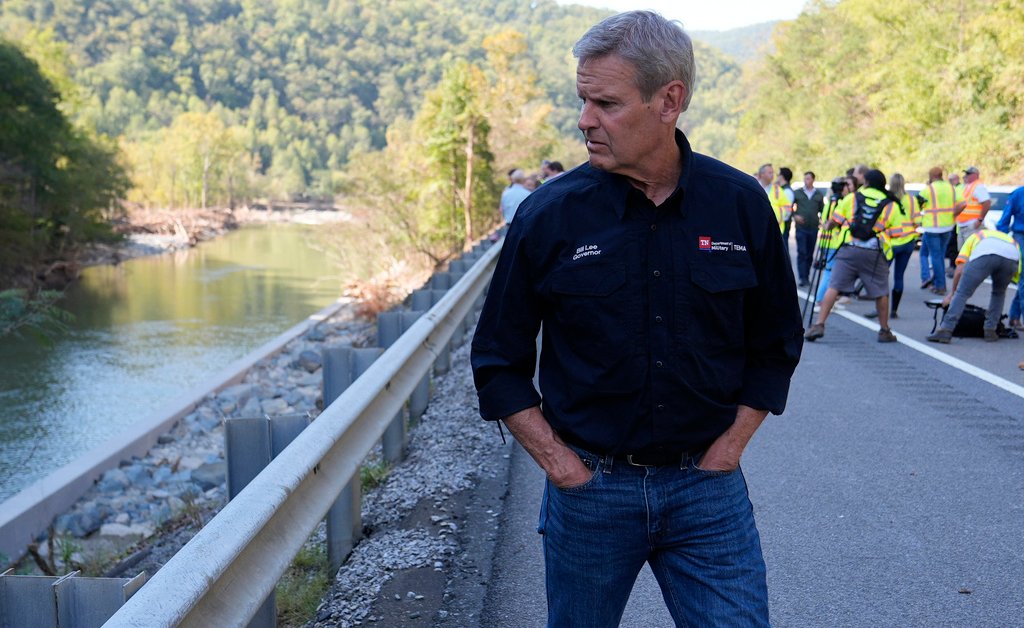This is an audio transcript of the Political Fix podcast episode: ‘100 days of Labour — Starmer’s stuttering start’
Lucy Fisher
Labour reaches a major milestone this week, 100 days. One word to sum it up.
Jim Pickard
Rocky.
Robert Shrimsley
Faltering.
Miranda Green
Underwhelming. Although maybe they wouldn’t be able to agree on a single word, which is part of the problem.
[MUSIC PLAYING]
Lucy Fisher
Hello and welcome to Political Fix from the Financial Times with me, Lucy Fisher. Coming up, what have we learned about the kind of government Labour will be? Plus, Keir Starmer sets out the biggest overhaul to employment rights in a generation. And then there were two. What went wrong for late favourite James Cleverly in the Tory leadership race? To discuss it all, I’m joined in the studio by Political Fix regulars Miranda Green. Hi, Miranda.
Miranda Green
Hello, Lucy.
Lucy Fisher
Robert Shrimsley. Hi, Robert.
Robert Shrimsley
Hi, Lucy.
Lucy Fisher
And the FT’s Jim Pickard. Hi, Jim.
Jim Pickard
Hello.
Lucy Fisher
So let’s start off. It’s a good moment, isn’t it, to reflect on where we’ve got to with this Labour administration, although it does tend to be more of an American obsession, the first hundred days. Miranda, what’s your assessment of how they’ve done?
Miranda Green
Well, it’s not JFK, (laughter) that’s for sure. I think it was the Kennedy administration that first sort of, you know, gifted us this idea of the first hundred days. Is that right, Robert? You’re looking quizzical.
Robert Shrimsley
Thought it was Roosevelt.
Miranda Green
Really? OK. Well, there we are.
Robert Shrimsley
They said the Kennedys, as always, popularised it, certainly.
Miranda Green
Yeah. (Inaudible) then completely screwed up my comparison of the kind of Camelot of the Kennedy era with the, you know, all the freebies . . .
Robert Shrimsley
Let’s just edit it out. I think it was a Kennedy thing. (Laughter)
Miranda Green
You know, the sort of high living possibly would be a kind of Kennedy-era Camelot feel that they wouldn’t have wanted to leave the public with. I think there has been a lot of faltering and mis-steps. Part of that has to do with this weird vacuum created by the Budget not being until the end of this month, very end of October, which meant that conference season, the summer was all just a sort of bit of no man’s land; departments not knowing quite what they were gonna get from Rachel Reeves. And of course, we still don’t quite know what the Budget will tell us. And into that vacuum has rushed a whole load of negative stories, causing them problems.
Lucy Fisher
I agree with that, that the lack of a Budget for almost four months has contributed to this sense of drift. The people are asking bigger, more searching questions about whether there’s a vacuum at the heart of the project. You know, before the election, we had a lot about these five missions. Points for you if you can name them all in quick succession.
Robert Shrimsley
There’s the growth mission, there’s the NHS mission, there’s opportunity for all mission. There’s a crime mission and a green energy mission.
Lucy Fisher
Nice work. But we haven’t really sort of heard more sort of flesh put on the bone of that or a kind of coherent narrative really spun around that vision, have we?
Robert Shrimsley
Yeah. And I think this is the point. I’m actually listening to Miranda. It just occurs to me they’d kill to be thought of as a Camelot government with everyone, you know, cooing over what a fantastic, glamorous and cool and brilliant bunch they were sort of the early days of the Kennedy administration.
Look, I mean, I think you both made the point about the Budget, which is definitely correct. Also, obviously, the election did come a bit earlier than they thought it would and they just patently weren’t ready in terms of governing. You know, lots of things were not in place and they have not got started. And I think it is . . . Seems that I don’t think that directionally, it’s that they don’t know what they want to be. It’s that we’re not seeing the evidence of the governing drive that is going to achieve the missions that they have set out.
And I think to be fair, there are some things that have happened. Quite a lot of legislation is going through on transport particularly. And I think they are moving and they are moving in the direction they intended to move. But it’s just stuttering because they haven’t worked through their plans tightly enough. They haven’t got control of the centre.
Clearly, I think even Keir Starmer now recognises the Sue Gray appointment didn’t work. People were not being appointed into key roles in government and in Downing Street quickly enough. For some reason she ran the communications grid, which I’ve never understood why that happened. So the messaging has been off. And that means that when the other stuff and the bad stuff came in, the suits, everything else, they were blown off their message. And so when you ask people what have been the first hundred days of Keir Starmer, people will talk about free suits.
Lucy Fisher
And Jim, that brings us on to Sue Gray’s departure. She has been removed as Keir Starmer’s chief of staff. Morgan McSweeney, his strategy chief, has been inserted into that role. What difference is that gonna make? I mean, there is a sense, isn’t there, that Sue Gray, bit more on the soft left, you know, allied with the likes of Angela Rayner, Louise Haigh, whereas Morgan McSweeney more of a classic Blairite, more allied with Pat McFadden. Might we see a change of direction?
Jim Pickard
Yeah, I mean, I’d not heard the theory before that Sue Gray was more aligned with the Ed Miliband/Louise Haigh camp within the cabinet, which is definitely a split. As you say, they are more to the left. You have people like Pat McFadden and Wes Streeting, who are more to the right. Well, we definitely do notice that Morgan McSweeney is off the latter camp. So I think wherever Sue Gray’s sympathies were, you’d expect us to see things moving in a more Blairite direction. And McSweeney’s . . .
Robert Shrimsley
(Inaudible) pushed back on this. We talk about and I do it too. We talk about Morgan McSweeney’s Blairite. But actually, he’s much more sort of Blue Labour, isn’t he, working class Labour. He actually is quite scathing of the Blair project, that they lost their working-class voters.
Jim Pickard
Peter Mandelson, who is the ultimate Blairite and has said before that he doesn’t know what kind of miracle produced this incredible guy, Morgan McSweeney, who was continuing the lot of the New Labour Blairite traditions of moving to the centre grounds, being tough on things like crime, national security and fiscal stability and all the rest of it, which is, you know, yes, there is crossover between Blue Labour and Blairism, but I think it’s splitting hairs a little bit. I think in terms of listeners coming to this, you know, are they gonna be slightly more rightwing? (overlapping speech)
Miranda Green
Isn’t the point about McSweeney though, that he kind of earned his spurs with on-the-ground politics. You know, he was there on the kind of street battles against the BNP. Well, not little street battles. The house-to-house canvassing street battles against the BNP in Barking and Dagenham. You know, he worked in Lambeth, where they had to overcome the suspicion of the local population against a very leftwing Labour administration which had fallen foul of delivery. So he’s of that school of what can Labour actually do to improve people’s lives and that’s how you earn their political trust. I think it’s a mistake to see that as kind of ideological one way or another, potentially.
Jim Pickard
Yeah, but I mean, I think what Blue Labour and Blairism had in common is that, you know, it wants to reach people who weren’t that interested in politics.
Miranda Green
Yeah, I totally agree with that.
Jim Pickard
Listening to Miranda talking about Morgan McSweeney’s political roots reminds me of the really interesting points about him, which is that he’s not been in government, central government before. Sue Gray, of course, was steeped in government. Her critics point out that she never ran a department and a lot of the role she had in government were more kind of monitoring things and not actually running things. But Morgan McSweeney has run even less in managerial technocrat terms than Sue Gray ever did. And that is gonna be an interesting potential faultline to watch, I think.
Miranda Green
I wanted to ask you, Lucy, actually, with your Whitehall hat on what you thought about there’s a fantastic quote in I think Jim’s piece about McSweeney where he was described as a smasher and a breaker rather than a moulder and a manager. How’s that gonna go over the centre of government?
Lucy Fisher
Well, I think it’s a really good question and one that has raised a lot of eyebrows in Whitehall. You know, he’s not a creature of Whitehall. And whereas there were concerns that in some ways Sue Gray had been mis-sold — yes, she was a veteran of officialdom, but she had done certain jobs in ethics and propriety. Yes, she’d been a deputy permanent secretary in the housing department, but she’d never had a top-level role doing the kind of organisational systems management that would have made her really perfect for that chief of staff role. So I think people are looking slightly askance at Morgan McSweeney coming in.
Robert Shrimsley
But don’t you think . . . I mean, that quote that Miranda read out, I remember seeing as well in the piece. But I do think, I mean, that’s the comment of somebody who’s very hostile to Morgan McSweeney. He’s actually, if there’s one thing you can say about this man, is that he’s been very good at building teams. He built the entire Labour, you know, Together network. He built the operation that pushed Corbynism out of the Labour party. So, you know, if you’re on that side of the party, you’d view him nervously. But actually, this is a guy who’s good at building loyal teams.
Lucy Fisher
Let’s step back and look at what the Labour administration has done well so far. Jim, to be fair to him, Keir Starmer in his conference speech had a list of things that he’s kind of got going with. Some of it’s legislation. Robert mentioned transport. He talked about the kind of the rail renationalisation bill that’s already cleared the Commons and is into the Lords. He talked about getting going with trying to ban MPs’ second jobs, at least in some sectors. He obviously settled the junior doctors strike. He’s got the public sector pay deal over the line. The King’s Speech was really quite a meaty document. So to be fair to them, there has been some sort of sense of direction that’s come. But how would you assess what we can kind of learn what this administration is from there?
Jim Pickard
Yeah, I think all of that is true. And I also think that the way he handled the riots has been widely acclaimed. You know, he took it head on and we came through that very difficult period during the summer I think with his reputation certainly intact, possibly improved in the way that he handled that. And I think there’s a weird disjunct between Fleet Street commentators saying, you know, if only this government was doing some concrete things and you know, we wouldn’t be sort of microanalysing Sue Gray or the free suits or whatever it was.
I mean they aren’t doing an awful lot of stuff in policy terms, as you said and, you know, we haven’t yet got on to the employment legislation out this week. But I think what’s interesting to me, we were talking earlier about the delivery of the five missions. Now, changing employment rights isn’t one of those missions. And yet they have huge amounts of stuff they’re doing in some areas. But on the actual key missions, I couldn’t tell you precisely what they’re doing in terms of NHS reforms, for example. So there just seems a bit of a mismatch between the things that they’ve said of their political priorities and the really big things that they’re doing.
Lucy Fisher
Robert, you’re looking quizzical. But Jim’s on to something, isn’t he, that the missions haven’t really been properly fleshed out beyond kind of thematic headlines.
Robert Shrimsley
No, no, I think that’s absolutely right. The mission boards, which are supposed to cut across Whitehall and deliver these goals, are not really firing properly. I was not looking quizzical. So I just think that we often look at the work of government in terms of legislation, what it does to this is now the law, that is now the law. But so often the things that actually make a difference are not necessarily legislative. They’re about how you change how things work. And I think that’s the worry for people who want to see this government do well is what we’re not yet seeing. And it is still early. We have to accept this point. What we’re not yet seeing are signs of them getting a grip on the delivery mechanisms that will actually make things better.
Lucy Fisher
Miranda, should we cut them some slack that the election came a lot earlier than expected? That partly explains why they were underprepared for this first 100 days. Or should we be harsh that they should have been better prepared for that and to have their hand on the tiller?
Miranda Green
I don’t think indulgence is required actually, because they have been waiting 14 years to get back into power. And it’s absolutely true that Keir Starmer’s leadership has been an extraordinary success in terms of rescuing the Labour party from the, you know, pit into which it had fallen under Jeremy Corbyn and coming back. So his political triumph is secured.
But some of the things that they’re doing are just really terrible, kind of falling into heffalump traps. It’s not just the free suits. If you think of the things that kind of have cut through, there’s also the cut to the winter fuel allowance for pensioners, and probably also Starmer saying that he will give a fair wind to the assisted dying bill, which well, that’s a private members’ bill that he’s said that the cabinet is not allowed to debate the pros and cons of it publicly, but he’s in favour.
These are quite, they look quite eccentric things to allow to become the big stories of being in power so far. As my, you know, friends here have said, obviously they’ve done lots of other things as well. But how many huge day after day headlines have you seen about the rail changes, for example? Not as many as the enormous pay award to train drivers, which is what people seem to remember on the transport agenda so far.
Lucy Fisher
Robert, just picking up on Miranda mentioning the winter fuel allowance. That was obviously very much an economic, Treasury choice. You’ve written this week about “Treasury brain” and the way that plays into thinking. Has that been overdominant because there hasn’t been enough grip by Number 10? Number 11 has been sort of too strong in this administration so far.
Robert Shrimsley
I think yes up to a point, because for the reason you just outlined, that actually if Downing Street is not driving everything, then the only other department that can is the Treasury and it will. So I think to that end it’s true. The difficulty with saying that yet is that we haven’t seen the Budget and the Budget is everything. They’re all completely focused on the Budget.
Now clearly, the winter fuel allowance cut was absolutely a Treasury measure and I think primarily inspired to say to the markets, you can count on us to do horrid things if we have to, to keep the economy stable. And as a downpayment on what might be coming in the Budget on some fairly substantial borrowing increases, that may be a shrewd move. I’m not so sure that that was wrong.
But as you say, it came out of the blue, there was no preamble to it. No one saw it coming. There was no messaging around it. There was no effort to say to pensioners until quite a bit later, well, look, you’ve got your pension going up in other ways. So it’s an example of how the void, the vacuum will always be filled and the Treasury is frequently the department that will fill it if it’s there.
Lucy Fisher
And Jim, we’ve spoken about how this big investment summit coming up on Monday is in some ways back to front in its timing. Some execs have said we need to see what the tax landscape is in the Budget before we can really commit to major investment announcements. What do you think we are gonna see on Monday? Tee it up for us.
Jim Pickard
So we’re gonna be in some very lovely old gilded halls in central London. We’re seeing all sorts of chief executives flying in from around the world. And we’ve seen some quite heavyweight people who are gonna be there and panels with various cabinet ministers. And there’ll be hundreds of people there. There’ll be a big dinner.
And I think if the idea is to demonstrate that, you know, this is a government of the centre-left but they’re quite cosy and friendly with business, it will serve its purpose to some extent, to the extent that the public will notice it at all. But I think you’re right that the individuals at this event are gonna be asking again and again and again, how much are you putting up capital gains tax? What are you doing to inheritance tax? Are you raiding employer NICs? Basically, what is gonna be in this Budget, which you’ve made very, very clear, is gonna be a raid on us, the wealthy. And so the timing’s a little bit unfortunate.
I also think I’ve noticed how when whenever Keir Starmer is asked about how are you gonna get, fulfil this mission of having the fastest economic growth in the G7? He does keep talking about this investment summit as if it’s some kind of panacea or holy grail, you know. It’s just that they aren’t, guys. (Laughter) It’s not necessarily . . . It’s not gonna change the world. But and of course, they’re gonna put out all these figures of, you know, this company will invest X but in this company will invest Z billion. But I’ve been in the lobby for quite a long time. I very rarely see a new investment figure in one of these big announcements.
Lucy Fisher
Miranda, another area where I think people think Starmer has possibly spent more time than he expected is on foreign affairs, given the crisis in the Middle East. He’s probably done quite a good job, would you say, in projecting his authority on the world stage, jetting out to that Nato conference, hosting European political community in Blenheim Palace.
Miranda Green
Yeah, I mean, leaders of UK government generally fall back on foreign affairs when they find the domestic policy scene a bit too tricky. And there’s certainly a sense of Starmer doing better on the part of his important head of government role, I think. It’s obviously a really difficult time internationally to be taking over with, you know, war on two fronts, and particularly because of the Middle East, as we’ve discussed many times around this table. You know, inside the Labour party, it’s a really tricky one to handle in terms of tone on Gaza and Israel.
I think that they’ve obviously got this really difficult job, haven’t they, because we don’t yet know who’s gonna win the US presidential election, which is on a knife edge. You’ve got the question of how do you relate to China and there’s a little bit of movement on that, isn’t there? There’s a little bit of signs of slightly warming up to want to enjoy a better business relationship with China and therefore less hawkishness. Again, that’s a really tricky fine line for any head of government to walk, and we’re yet to see whether they pull that one off, I would say.
Lucy Fisher
I think we might learn more next week when I think David Lammy is going out to China himself. Robert, what about Keir Starmer as a prime minister, this idea he’s more a chairman than a chief executive. He doesn’t micromanage, wants to empower his cabinet ministers, particularly those like Ed Miliband, who’s been in charge of the green mission; Bridget Phillipson, the education secretary, who is put in part of, in charge of the opportunities mission. What do you make of his style of leadership?
Robert Shrimsley
I don’t think it’s necessarily terrible to have a prime minister who in his own mind picks good people and delegates to them and says, you’re in charge of this, you run it. I’ll jump in when things are difficult for you (inaudible). That’s not an impossible model of prime ministers, even if it’s not one we’ve been used to recently. We’ve had a long succession, discounting Boris Johnson, of micromanaging prime ministers, where they actually jump in and they’re all over everything. And I think the balance is probably somewhere in the middle that you do still have to have this strong centre and this engaged prime minister.
I think my concern with him more at the moment of what we’ve seen so far is that I just think he’s not serious about the politics of the job. He has this sense and self-image of I’m a serious man, but serious is not the same as substantial, and it’s not good enough to despise the way the modern media works and say I’m gonna rise above it. It’s not good enough to say I’m not playing these games because you have to be serious about politics too. And it’s rather like saying, you know, I don’t approve of the weather, so I’m not going out with an umbrella. That didn’t work for Rishi Sunak.
So I just think you have to be serious about all these things. And he’s not a storyteller. Prime ministers have to be storytellers. They have to carry people with them. And he just doesn’t seem to me to want to be that person.
Jim Pickard
I think what Robert says is absolutely true and I think all of this stuff was apparent and true before the general election. And it’s one of the reasons why a lot of us didn’t think that Labour would coast in with a 20-point lead, which of course ended up being 10 points. And they won because the Conservatives disintegrated because the general public hates them. There was never a wave of love for them. And part of that was because Keir Starmer seemed like a great figure, wasn’t great at creating political narratives, as you say. And those are things that you can’t change. You can’t just create a different personality. And if anything, his reputation, because of the whole freebie issue, whatever you think of that, has been impaired. You know, he used to be seen as a man of great probity and dullness, and the probity bit has taken a bit of a hit.
Robert Shrimsley
Moving Sue Gray was a sign that Starmer was prepared to recognise there was a problem and attack it. So that’s an encouraging sign. But I think if we’re not talking like this any more by Christmas or early January, then it’s fine. They had some teething problems, they dealt with it. If we’re still talking about this government in this way by the spring, then it’s a big problem.
Lucy Fisher
And Jim, can I ask you, Robert mentions, you know, what we’ll be talking about in 10 years’ time about this early part of the government — the employment rights package that we finally saw the contours of this week when the legislation was published on Thursday. That was a really big moment, wasn’t it? Tell us a bit about that and what was new that we learned.
Jim Pickard
Yeah, absolutely. So I would say there’s probably five new things that we found out this week about this package of employment rights changes. So even though there’s 60 or 70 policies, only 28 of them are actually in the primary legislation. Others will be introduced through other ways. It’s gonna be a whole load more secondary legislation and there’s gonna be an awful lot of consultation.
And, you know, we wrote a piece in the FT a week ago saying that some of this stuff is gonna slide until 2026. What they’ve been really explicit about this week is that most of it won’t come into effect for workers until 2026 at the earliest. So all of that stuff that they kept talking about, which was we’re gonna legislate within 100 days, is a very sort of union-friendly bit of rhetoric that the unions loved.
Yes, it’s true that within 100 days they have a piece of primary legislation, but that’s just a kind of skeleton from which everything else is gonna emanate very, very slowly. And there are some things like basically collective bargaining in the social care sector, which I think you’re looking at 2027 at the earliest. You know, single status for employment, that’s gonna be pushed quite into the long grass.
Business, a little bit uneasy about it; unions really happy. And the unions didn’t seem to mind the one thing which I thought they would be unhappy about, which was the significant change on something called probation, which they’re gonna create this probation status for the first time. And to understand this, you have to look back at how they’re saying they’re gonna create day one rights for all workers and various things like paternity leave and your ability to go to a tribunal if you think you’ve been unfairly dismissed. This new probation period of nine months is longer than the six months we thought it’s gonna really cut and get across that.
Lucy Fisher
Miranda, is it smart politics in one way to dribble this out and to introduce things, the concept of them, that won’t come in for several years yet? Will that reassure business? Or does this feel a bit like a dog’s dinner, the way this has all evolved?
Miranda Green
I’m not sure about dog’s dinner, but it does feel slightly like trying to buy off two opposing groups of people with completely different concerns. But, you know, perhaps, sometimes one person’s dog’s dinner is the other’s honourable compromise. I think actually, when we see, you know, the final package and how business reacts, we might get a better understanding of that. You know, certainly business has been worried about some of these new rights, but it’s important for them to demonstrate that it’s a Labour government and that it’s different.
And, you know, people who voted because of deep discontent would like better protections. And actually the polling shows that there’s a lot of public backing for this. The modern employment practices that have resulted from the digital revolution do in a lot of cases deliver up exploitation. And so actually dealing with that is a perfectly justifiable core part of a Labour mission in government. I think that’s fine.
Also, there’s a kind of quite nice contrast, as we now sort of find. Kemi Badenoch, one of the two contenders left for the Tory leadership, raising really sort of slightly bizarre ideas that we should question maternity pay — something that’s been established as a sort of core right at work for a long time now in this country. So arguably for Labour, it also becomes quite a useful wedge issue, actually.
Lucy Fisher
Robert, what’s your impression of how significant this employment rights package is?
Robert Shrimsley
I think it’s important in a few ways. First of all, it’s something Labour promised to do in its manifesto — an actually explicit promise — and therefore I think it’s important it does it, because I think governments should keep their promises. I think there’s quite a lot of things in it, which as Miranda said, are very popular actually.
Just talking from personal (inaudible), my children were doing university jobs and things like this, and one of them I remember getting one of these flexible-hours deals and travelling to work, and on her way to work when the text came in: oh, no, we don’t need you today. She’d actually bought tickets. This balance of power within the job market, particularly at the lower end of it, was seen by many people to have gone too far and been too unfair. So I think although there will be business complaints about it, you know, it won’t come from the big businesses because they can deal with it. It’s the smaller businesses.
So I think a lot of people will look at this and think this is fair and reasonable and what a Labour government should be doing. And I think, dispassionately, others will look at this and go, well, OK, you have a moderating influence on this. You have the Rachel Reeves voice, you have the business and growth voice. So yes, they’re gonna do these things, which is what Labour governments do, but they’re not gonna go crazy with them. And I think that’s probably, you know, what you would hope for, if you are worried about a Labour government.
[MUSIC PLAYING]
Lucy Fisher
Well, it was a mic-drop moment on Wednesday, wasn’t it? And I was lucky enough to be in committee room 14 in the Old Palace of Westminster when we found out that James Cleverly, the former home secretary and former foreign secretary who had been the late favourite to win the Tory leadership, had been knocked out of the race and that it is Robert Jenrick and Kemi Badenoch who’ve made it through to the final two.
Robert, do you think it was Cleverly supporters who misjudged him with trying to get who they wanted as their preferred, you know, candidate to face him off? Or do you think something happened in the third round on Tuesday to over-puff Cleverly — some kind of jiggery pokery on the part of the Jenrick or Badenoch camps?
Robert Shrimsley
I just wanna place on record that I’m quite smug because I was the only person that was never in the Cleverly balloon, like definitely had a wobble last week, I’ll admit to that. And I was surprised when . . .
Jim Pickard
Fair-weather friend.
Robert Shrimsley
When the result came in. But look, I mean, there are two theories, as you said. One is that people who were so sure James Cleverly was now through and that he was gonna win — ’cause he was only two votes away from the threshold — decided to give their votes to somebody else, either because they just didn’t want them to make it through or because they thought they’d be a weaker opponent.
The other possibility — and I have to say, I’m slightly taken by this one — is that actually, Robert Jenrick’s team pushed a couple of votes his way in the previous round in order to do down Kemi Badenoch. And it’s probably a combination of the two. But the key point is, yeah, this was James Cleverly’s ballot to lose, and he lost it.
And that tells you something about what he was like, what he was gonna be like, I think, as a potential leader of the Conservative party. Because it was there. He had Tom Tugendhat votes to pull in, you know, the people who are more on the centre-left of the party. He was the least of the rightwing candidates. He didn’t get the votes because he basically didn’t do enough work on the night before, saying, come on, I need your vote, it’s much closer than you think. He blew it. And I think, actually, although he’s a very affable, solid guy, I actually think the Conservative party has probably dodged a bullet, even if it’s now walking into the gunfire. (Laughter)
Lucy Fisher
Interesting. Jim, Robert Jenrick, a former immigration minister — he has really put migration at the centre of his campaign. He’s the only candidate who has vowed outright to take Britain out of the European Convention on Human Rights if he comes to power. He was one of only two, along with Tom Tugendhat, who had called for a concrete cap on net legal inward migration. Kemi Badenoch — she’s talking more about cultural issues. Both of them want a smaller state.
How do you think this final stage of the contest is gonna shake out? What are gonna be the key kind of flashpoints? How will their campaigns differ, given they’re both staunchly of the right?
Jim Pickard
So I think the other difference between them is that Robert Jenrick doesn’t have a clearly defined personality, whereas Kemi Badenoch does have a very clearly defined personality. We will find out whether the Tory membership warms to that personality and then subsequently we’ll find out whether the general public does. But, you know, it’s definitely a choice between someone who is charismatic, smashes up a lot of crockery along the way, but will get cut-through on the media. You know, Badenoch is genuinely interesting.
Robert Shrimsley
For good and bad.
Jim Pickard
For good and bad. I’m not sure that Robert Jenrick is, and that becomes interesting. What I think — and I could be proved completely wrong; this is only my theory — but I think, you know, when you look at where the Conservative party needs to take votes from, I’m not convinced that Keir Starmer’s Labour party did take a lot of swing voters from the Conservatives.
You know, if you think about it, they got 33 or 34 per cent. It’s not an awful lot higher than Jeremy Corbyn got in his disastrous 2019 campaign. It’s Reform eating the Conservative vote, which was their major problem. So it does make sense in a strategic or tactical point of view for the Conservative party to go more rightwing on immigration, whether or not listeners like that or not.
Robert Shrimsley
But actually, I think from the figures that the Conservative party lost as many votes to Labour, Lib Dems and the Greens combined as it lost to Reform. It’s actually gonna get them all back. So it’s not — what you’ve actually got now got in this contest is a competition between a woman who appears to always mean what she says — and that worries MPs — and a man who probably doesn’t mean anything he says. And that worries his MPs. So the question is which one of these people is gonna move the party in the right direction if they were to win.
With Jenrick, you know, he’s playing the right card really hard. He put out some videos that were really quite, I thought, quite shocking. In some of the scenes, there’s a picture about people smugglers and every now and then you cut to a North African man grinning with wads of notes. It was really quite unpleasant stuff and he’s really playing that hard. But a lot of people think he’ll tack back into the left if he wins. So it looks like a competition on the right, but actually, nobody knows how it’s gonna play out.
Miranda Green
So this assumption that Jenrick sort of plays right to secure the leadership and then tacks back towards the centre. It reminds me a little bit too much of when everybody assured us that Boris Johnson was a liberal at heart. You know, we, nobody really knows what they’re projecting on to Robert Jenrick right now. So it’s really hard to call what he would do if he does secure the leadership. But I think with Kemi Badenoch, it’s quite interesting because, you know, Luke Tryl of More in Common, he said yesterday, I think, that when they’d showed those four speeches, the hustings at the Tory party conference, to the swing voters in some seats that went Lib Dem — I think it was Stratford-upon-Avon and a couple of others — they preferred Badenoch by far even above Cleverly, because there’s something about that sort of straight-talking appeal.
I mean, clearly that could bring all sorts of problems, as we’ve said, because she can’t, you know, she’d cross the road to have a fight with somebody, which can be a real problem when you’re trying to run an organisation and appeal to a wide voter base. But at least there’s sort of something about her. And, you know, when we talk about the Reform threat to the Tories, we always talk about it in policy terms as if it’s just some simple left-right, you know, battles to where you place yourself on a spectrum. I actually wonder whether there’s something about her straight-talking, fresh approach, which is a bit more of a threat to the kind of Farage appeal in a different way.
Jim Pickard
What’s interesting is that both of them are very sceptical of things like net zero. I mean, that’s classic Nigel Farage territory, as well as the culture war.
Miranda Green
Yeah, absolutely. But it’s not more that’s about the culture war, it’s just this sort of approach to politics, you know — with me, you get what you see. And I wonder whether that works a bit against Reform as well.
Robert Shrimsley
The one thing I’d question if I were a Conservative party member having to vote between these two, the one thing I think I might look at Robert Jenrick and say, this guy, he may be totally cynical in the way he’s positioning himself, but that’s not always totally unhelpful as a party leader. He’ll move to where the party needs to be at any point, and that actually he’s run by far the most professional and organised campaign. Now, you may not like anything he’s saying, but as a sort of operator, thus far he looks to me the most accomplished of them.
Lucy Fisher
(Inaudible) because I’ve also heard from some Tory insiders that in fact, he always was more rightwing. The opportunistic years in the Robert Jenrick career where the Cameroon kind of the coalition years, where he tried to sort of fit in with the prevailing cultural leadership in the Conservative party then by seeming more centric.
Robert Shrimsley
More edits than a Wikipedia page.
Miranda Green
So you mean, it’s not a journey that he’s on. It’s some sort of strange weaving?
Lucy Fisher
It’s some strange weaving that he kind of, you know, was always more kind of, you know, red-blooded . . .
Robert Shrimsley
They’re making it up. (Laughter)
Miranda Green
I think they’re seeing what they want to in this guy, right?
Lucy Fisher
Well, possibly.
Jim Pickard
I remember talking to a former immigration, a Tory former immigration minister who just said, when you’re in that department and that is your mission to get down the immigration numbers and it’s the Sisyphean task that no one can ever achieve and all the other departments seem to be working against you, you do start to go a bit native. You do start to believe in it. So it’s possible . . .
Lucy Fisher
But James Cleverly didn’t go native. I mean he’s a former home secretary.
Jim Pickard
But he wasn’t responsible for that specific, he wasn’t specific . . .
Robert Shrimsley
He’s not in the final two.
Lucy Fisher
Well, he’s not in the final two.
Robert Shrimsley
But that is what I actually . . . If you’d asked and although people did get excited by Cleverly, if you’d asked any of us at the beginning of this contest what was most likely to happen, I think we’d all have said the Conservative party would elect somebody more rightwing than Rishi Sunak. They will move to the right. They will move towards their activist base. And fundamentally, that’s actually what’s gonna happen.
Lucy Fisher
The thing is, I still think this could be good for James Cleverly in the long run. If we have a Robert Jenrick or Kemi Badenoch leadership that implodes after two years, that could be a perfect moment for the likes of Cleverly to sweep in again.
Jim Pickard
What was the mood like in the room when Cleverly was knocked out?
Lucy Fisher
I mean, there were audible gasps, true melodrama. It was, it was a real surprise.
Jim Pickard
One of those wood-panelled rooms in parliament.
Lucy Fisher
Exactly. Exactly. Everyone crowded in, there weren’t enough seats for all the journalists there waiting. And Bob Blackman really enjoying his moment, the 1922 chair, as he kind of came in and he read out . . . .
Jim Pickard
He speak very slowly.
Lucy Fisher
He read out the numbers. We also had our notepads and wrote them down. And he says the names in alphabetical order. And so he said, Kemi Badenoch, I think, 42. He said James Cleverly, 37. And that’s when the cogs started turning and people thought, oh no, he hasn’t made it. So, yeah, it was a moment.
[MUSIC PLAYING]
Well, that just leaves us time for Political Fix stock picks. Jim, who are you buying or selling this week?
Jim Pickard
I’m gonna buy Jonathan Reynolds, also known as Johnny Reynolds, who is the business secretary and who is the person in charge of this package of employment reforms, because I don’t think we’ve ever bought or sold him before. And I think he’s one of those people who flies a little under the radar in terms of public image. But he’s in a very pivotal position as the business secretary, very close to Rachel Reeves and Keir Starmer.
I would have thought of him in the old days as kind of soft left. But he’s also very close to business. He’s one of the few people that can bridge boardrooms and also trade union leaders. He has an awful lot on his plate. He’s someone who has traditionally been quite emollient, softly spoken. But when I saw him in the House of Commons a few weeks ago taking on the Tories, who were criticising his deal with Tata Steel, I saw a different side of him, which was very competitive and actually quite fiery. I’d never seen it before.
Lucy Fisher
Miranda?
Miranda Green
Well, I think I’m going to buy the network of regional mayors because they seem to be kicking off slightly the idea that Starmer’s central operation just wants them to be obedient delivery mechanisms for a bunch of stuff thought up by the central Labour party. They’ve all got those jobs because they’re not short on ego and they need to deliver for their regions. And I think you might see them, particularly now that Sue Gray has gone, because they liked her, they liked the way they’d been brought in to a proper conversation with the centre by Sue Gray. With her gone, I think you might see the regional mayors, particularly the Labour ones, kicking off a bit more.
Lucy Fisher
Interesting. Robert, how about you?
Robert Shrimsley
I think I’m going to buy Louise Haigh, the transport secretary.
Lucy Fisher
With pink hair? With pink hair?
Robert Shrimsley
Dramatic hair. I mean, she’s one of those people who the public will recognise when they start seeing her on television a bit more. I just think she’s one of things you look for with a new government is which of these people are actually gonna cut it as a minister, actually gonna be up to the job. And I think she’s beginning to show quite clearly that she is up to the job. A lot of the things that Jim was talking about earlier, they’re her bills. The rail renationalisation bill, that’s hers. The measure, I think, to take buses back under mayoral control — I think that’s hers, too.
Jim Pickard
And she’s only 37.
Robert Shrimsley
She’s 37. She’s the youngest member of the cabinet. She’s announced measures to get a handle on HS2 and push a possible replacement for it into the north. And I just think she looks to me like a minister who’s on top of the brief. So I’m going with her. What about you, Lucy?
Lucy Fisher
I’m gonna buy Morgan McSweeney. I just think, you know, his empire-building . . . (Laughter) (Overlapping speech)
Robert Shrimsley
You were investing in James Cleverly for another two (inaudible).
Lucy Fisher
I mistook my holdings in James Cleverly. I had to get Manuela, our executive producer, to refer to the spreadsheet to confirm that I hadn’t misinvested. No, McSweeney might be at a high price, but I . . .
[MUSIC PLAYING]
Jim Pickard
He’s not going anywhere, is he?
Lucy Fisher
He ain’t going anywhere. He is absolutely pivotal to this administration, and I think we’ll be hearing a lot more about him in years to come.
That’s what we’ve got time for now. Miranda, Jim and Robert, thanks for joining.
Miranda Green
Thank you very much.
Jim Pickard
Thank you.
Robert Shrimsley
Bye, Lucy.
[MUSIC PLAYING]
Lucy Fisher
Political Fix was presented by me, Lucy Fisher, and produced by Clare Williamson with Mischa Frankl-Duval. Manuela Saragosa is the executive producer. Original music and sound engineering by Breen Turner. Andrew Georgiades and Rod Fitzgerald were the studio engineers. Cheryl Brumley is the FT’s global head of audio.
We’ll meet again here next week and at an earlier time than usual because we have a special for you with Martin Wolf, the FT’s chief economics commentator. We’ll be looking ahead to the Budget and the state of the UK economy. Join us then.
[MUSIC PLAYING]











































































































































You must be logged in to post a comment Login